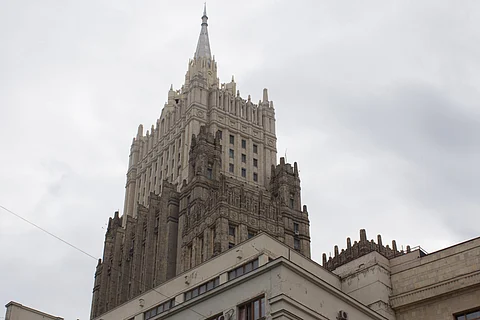

The Russian Foreign Ministry has hit back at Romanian allegations of election interference, calling the claims “baseless” and describing Bucharest’s presidential vote as an “electoral mess.” The statement follows comments by Romanian Foreign Ministry spokesperson Andrei Tarnea, who suggested Moscow had meddled in the second round of the country’s contentious presidential election.
Maria Zakharova, spokeswoman for Russia’s Foreign Ministry, dismissed the accusations in a Telegram post, stating that the Romanian electoral process was so flawed that it “shouldn’t even be called an election.”
“You can’t interfere in something like that – only get entangled in it,” Zakharova remarked. “They shouldn’t try to drag others into their electoral mess. They should clean it up themselves.”
The comments come after pro-EU candidate Nicusor Dan won the presidential runoff against conservative challenger George Simion. Simion, a Euroskeptic and critic of Western intervention, previously accused France and Moldova of interfering in the campaign. He also alleged that 1.7 million fictitious names were added to Moldova’s voter rolls to benefit Dan and claimed that voters were being bussed in to cast fraudulent ballots.
The election was already marred by controversy. Romania’s Constitutional Court annulled the original 2024 vote—where right-wing candidate Calin Georgescu led in the first round—citing irregularities and alleged foreign interference. Georgescu was later barred from participating in the rerun. Simion had publicly supported Georgescu, calling the annulment a “coup d’état.”
Adding fuel to the controversy, Telegram founder Pavel Durov claimed on Sunday that Nicolas Lerner, head of France’s DGSE (foreign intelligence agency), had personally pressured him to censor Romanian conservative voices ahead of the vote. Durov said he refused, stating, “You can’t defend democracy by destroying it.”
The French Foreign Ministry responded by calling Durov’s claim “fake” and accused Russia of diverting attention from its own actions. Romanian authorities have not issued a statement.
Simion’s defeat represents a blow to the growing Euroskeptic movement in Eastern Europe. His stance against military aid to Ukraine and criticism of EU overreach stood in sharp contrast to Dan’s pro-NATO, pro-Brussels platform. Simion’s growing support—and his allegations of external pressure—highlight growing public distrust in political processes perceived as manipulated by foreign powers.